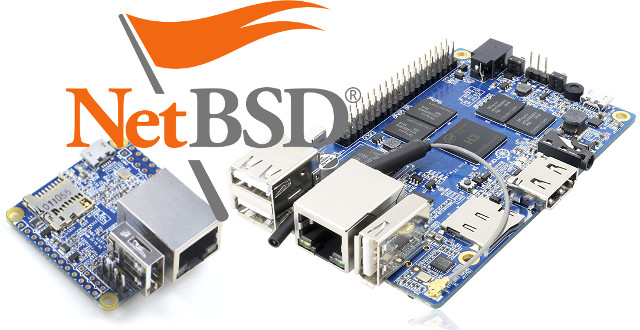Most people will run Linux kernel on development boards because it does the job, and that’s usually the only option. But others have been working on NetBSD kernel for Allwinner H3 boards, and it’s now running on various H3 boards with serial console, USB, Ethernet, SD card, and eMMC flash working.

Jared McNeill explains they first had to deal with low-level code to initialize the CPU and MMU, before using a U-boot layer to disguise NetBSD as the Linux kernel in order to load kernel and device tree file. The code then jumps to the generic ARM FDT implementation of initarm to relocate DTB data and perform other steps, and finally they can enumerated devices. This is explained in greater details in the aforelinked blog post on NetBSD website.
Jared tested the implementation on NanoPi NEO and Orange Pi Plus 2E, but others have reported success on various hardware based on Allwinner H3 processor. Other ARM development boards have been supported since 2015 by NetBSD 7.0 and greater with Raspberry Pi 2, ODROID-C1, BeagleBone Black, Allwinner A20/A31 boards, and others, but the work done on Allwinner H3 is different, as it’s the first implementation to use device tree, and eventually it should be possible to ship a single GENERIC evbarm kernel for all boards.
Thanks to Geokon for the tip.

Jean-Luc started CNX Software in 2010 as a part-time endeavor, before quitting his job as a software engineering manager, and starting to write daily news, and reviews full time later in 2011.
Support CNX Software! Donate via cryptocurrencies, become a Patron on Patreon, or purchase goods on Amazon or Aliexpress




